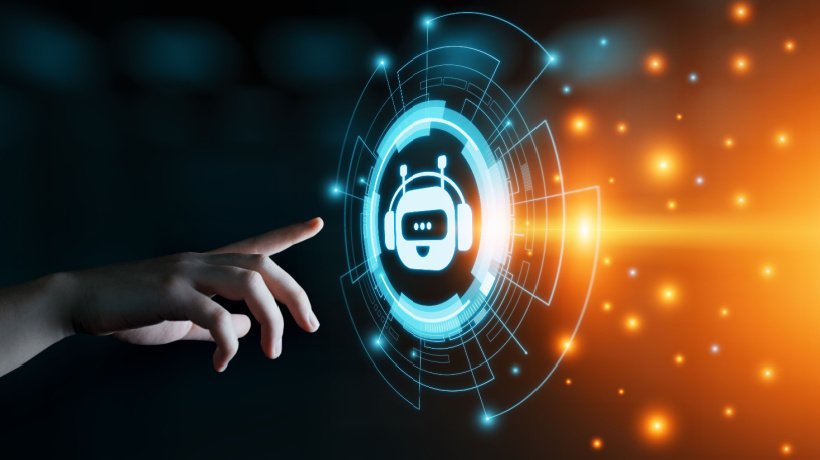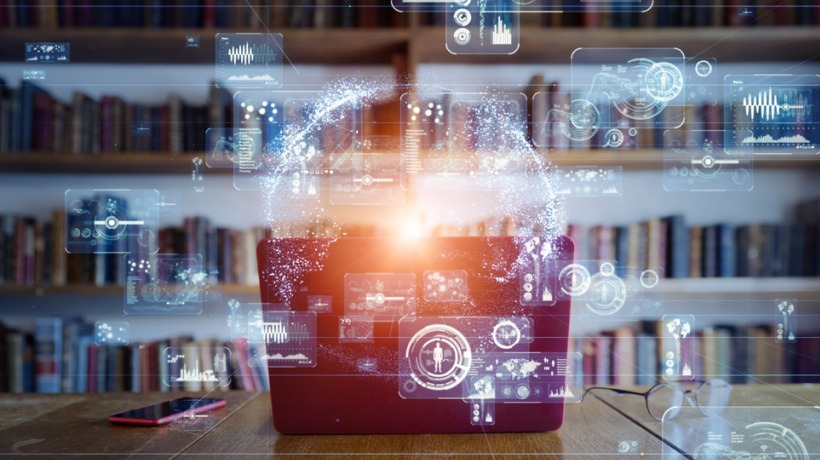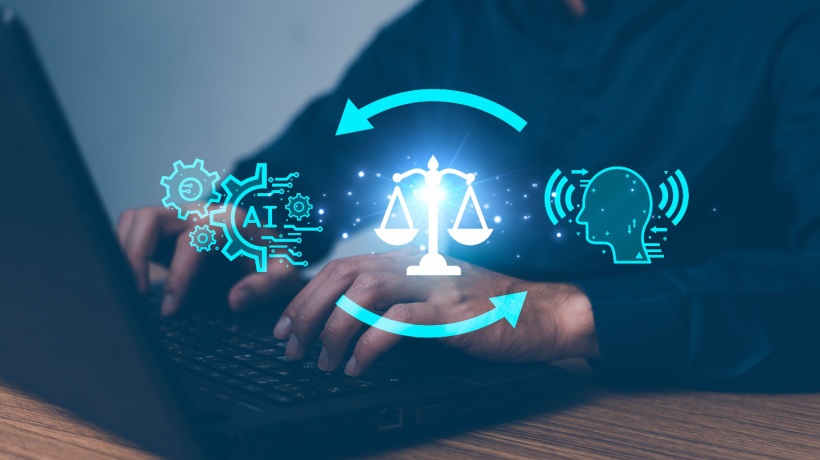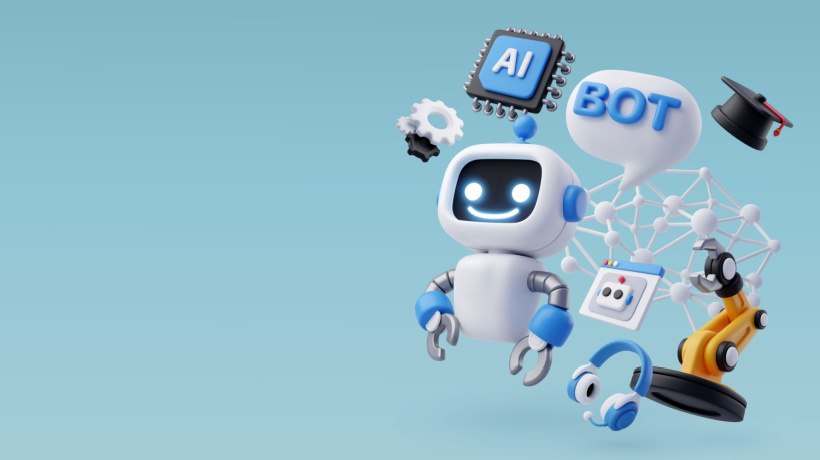How The Use Of LLMs Like ChatGPT Can Change The Future Of Education
I first came across a complete AI tool on November 30, 2022, when I learned about ChatGPT. Initially, I dismissed and shunned it. Sometime in January 2023, at an ID workshop, ChatGPT was the main attraction, and almost everyone saw it as an adversary, and the atmosphere of rejection was in the room. I decided not to use it as my peers had the same opinion. But there is a saying in English, "Man proposes and God disposes!" By March 2023, I understood my mistake when I gave it a try for the first time. It was so helpful that I couldn’t resist using it. Today, it's like an assistant who never takes a break and never needs a nap. The day is not far when it will work while I sleep.
So, with ChatGPT, "Do I matter?" Good, bad, or ugly, this is the truth, whether we like it or not; we need to upgrade our skills to keep it as the best assistant. In the last nine months, I have witnessed rapid change, and my aim is to adopt the practices that will help me cope with this change.
Change Is Unavoidable
In recent years, AI has transformed almost all professions. According to the LinkedIn 2023 "Future of Work" report, from December 2022 to September 2023, discussions on AI have increased by 70%. The report also stated a change in skillsets for almost all job roles by 2030.
Last year, many of my friends were afraid of losing their significance, their work, and their position in the world. But now, they are more optimistic and self-assured. They slowly realize that AI tools are not a danger but a help to their work. AI tools can enhance the quality and productivity of their work by incorporating AI components into their tasks. Let’s embrace the AI tools with an open mind and make them serve you. They are not your competitors; they are the facilitators of innovation. It is just changing our conventional environment…our home, social places, work, and many more. But it is not altering the structure of our life!
We just need to get ready for some major changes. Change is unavoidable, and the people should be ready to face it.
AI And LLMs In Education: ChatGPT Uses And Effects
Now, let’s examine the effects that tools like ChatGPT can have on education. Education as an industry is undergoing a fast change, and for the last two decades, it has been accelerating like a meteor. What intrigues me the most is the persistence of thought leaders trying to improve learning during this period. Finally, we got a chance to see ChatGPT, which can disrupt the way students learn—actually, learn without limits! Pandora’s box is open now! Are we anticipating troubles?
Similar to other industries, people had the same opinion at first, but the view has shifted, and people in the educational sector have embraced it fully. ChatGPT is one of the earliest Large Language Models (LLMs) to enter the market. It is the most popular topic, and these LLMs are well-suited to offer learners limitless learning opportunities.
LLMs have the power to sketch our future. They are gaining popularity and gaining acceptance all over the world. But let me share the two incidents that made me write my doubts about its usage.
Instance #1
The first one is about my daughter, a tenth grader. I have always been keen to try out new technological progress. So when she started using a well-known tool, I was very pleased as I thought questing could lead to better learning, and this tool does exactly that. However, last week, I saw her asking for a tool to create a question paper for class X. I was shocked that ethical behavior was lacking. When I questioned her, she explained that others are doing the same and she should not be left out. I let her continue the search for the elusive exam paper.
God, have some pity—the results that were shown were quite comprehensive; with few changes in subject and exam features, she finally got an exam paper. After a week, when she took her preparatory exam, I was amazed to see an 85% match. That means 100% of students will get 85% on their exams, and that’s the new zero. This is inflation of some sort, which is here to stay.
Instance #2
But what about the hollow minds in the process? The second instance is the statement of the UN chief endorsing the idea of a global AI watchdog like the International Atomic Energy Agency (IAEA). Guterres told reporters, "The latest form of Artificial Intelligence—generative AI—is ringing loud alarm bells…We have to heed those warnings." He has revealed plans to initiate work on a high-level AI advisory body to regularly assess AI governance arrangements and offer suggestions on how they can conform to human rights, the rule of law, and the common good.
People support the idea of OpenAI advocates forming a body like the IAEA that could impose restrictions on deployment, check compliance with safety standards, and monitor the usage of computing power. British Prime Minister Rishi Sunak has also backed the idea and wants Britain to be the leader of global AI safety regulations. So, there is no peace on the Western front!
People have understood the power of AI tools, and providing equal and regulated access for everyone is the key. As we all know, "equal opportunity" and "democratization" are two ways of distributing power. Till any consistent resolution is adopted the world over, we need to do the moderation and propose a global framework for ethical AI use in education. So, how is it impacting education?
The Impact Of AI Technologies And LLMs Like ChatGPT On Education
The advancement in AI technology, especially LLMs like ChatGPT, has changed many aspects of our lives, including education. While these tools provide access to information and ease of use, they also create difficulties regarding the originality of student work, academic honesty, and accurate evaluation of learning. The education industry needs to make a quick decision on the ethical use of AI before it becomes too late. Moreover, the ease of use has resulted in over-dependence, raising various concerns from educators such as:
- Can work produced with the significant help of LLMs be considered original?
- Are students learning well with LLMs?
- How can institutions guarantee the integrity of academic work?
All these concerns require a systematic approach and a global framework in educational settings. A framework maintains a balance between using the benefits of LLMs and upholding academic standards. Such a framework will ensure fairness in student’s academic endeavors, ensuring equal and just opportunity. In addition, the framework should be adaptable, having clear guidelines for efficient supervision by any educational institution.
The integration of AI tools in education is inevitable and beneficial, but it requires careful management to preserve the integrity of academic work. I am inviting all academics worldwide to contribute toward this universal framework.
Proposed Guidelines On The Use Of LLMs
Here's a set of well-researched guidelines on LLM usage in schools:
- Specify an LLM for students on school premises.
- Use LLMs as an additional tool, and everyone after the eighth standard will have proctored access.
- Use of LLMs is only allowed for students in pairs using one machine with a session proctoring feature.
- Use LLMs for initial research and not as a source of content and add a reference in the final write-up.
- Use LLMs for idea generation and discuss it with your teacher for extrapolating it.
- Any use of LLMs for academic work will be disclosed by the students and teachers.
- Any LLM-generated content must be modified by the student before submission.
- Students should be prohibited from submitting LLM-generated content as their original work.
- Use LLMs for the generation of assessment items.
- Use LLMs for feedback augmentation.
These guidelines aim to help educational institutions formulate their academic policies along with disciplinary actions for any non-compliance. To monitor and enforce these guidelines, institutions must set up resources and mechanisms and conduct mandated periodic reviews to accommodate technological and academic advancements.
Final Thoughts
Remember, AI tools will constitute tomorrow’s workforce; they will run the cities in the future, and every industry will involve AI. They allow learning without limits.






![How To Use ChatGPT: A Guide For Instructional Designers [eBook Launch]](https://cdn.elearningindustry.com/wp-content/uploads/2023/06/How-To-Use-ChatGPT-In-Instructional-Design.jpg)

